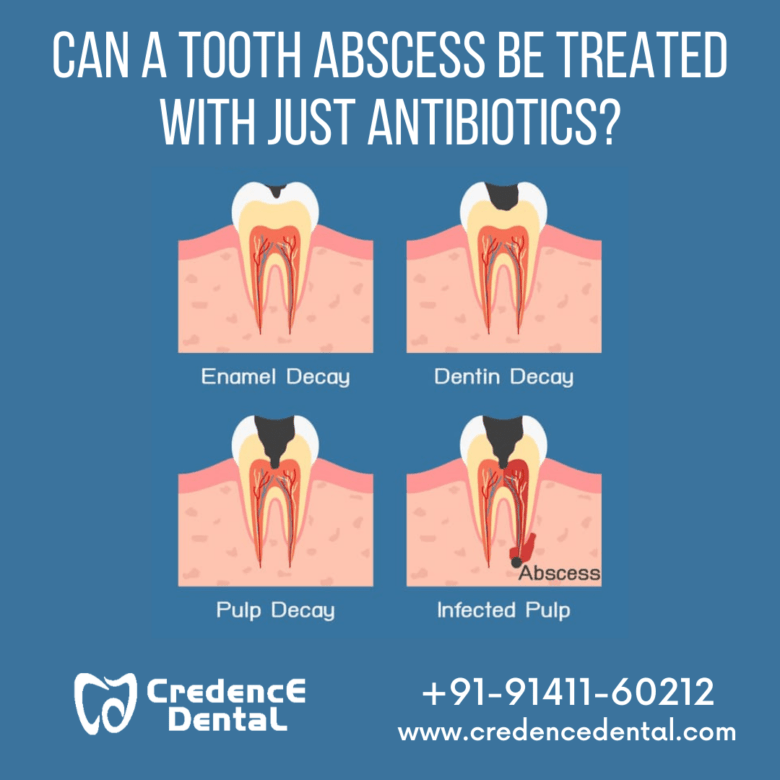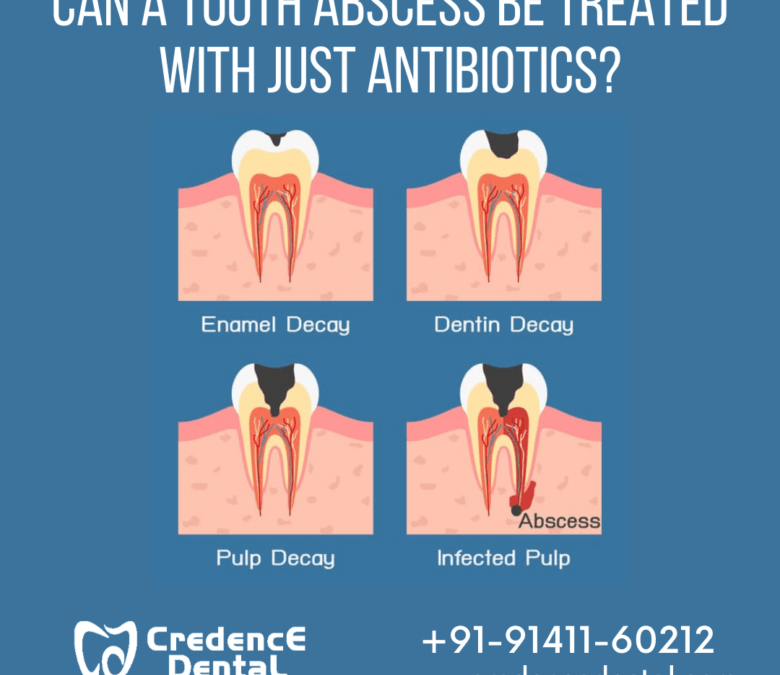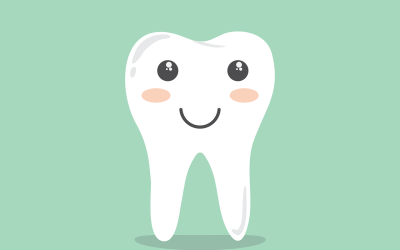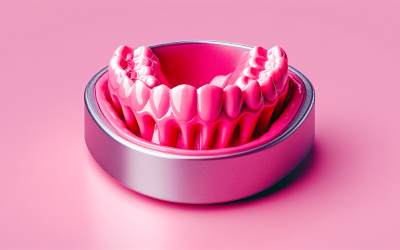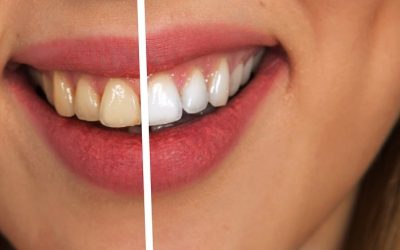So you’ve been experiencing some discomfort in your mouth, huh? Well, don’t worry, because in this article, we’re going to talk about the various treatment options available for dental infections. Whether you’re dealing with a painful toothache or a persistent abscess, finding the right treatment can bring you much-needed relief. From antibiotics to root canals, we’ll explore the different approaches to tackling these pesky oral infections and getting you back to smiling pain-free in no time.
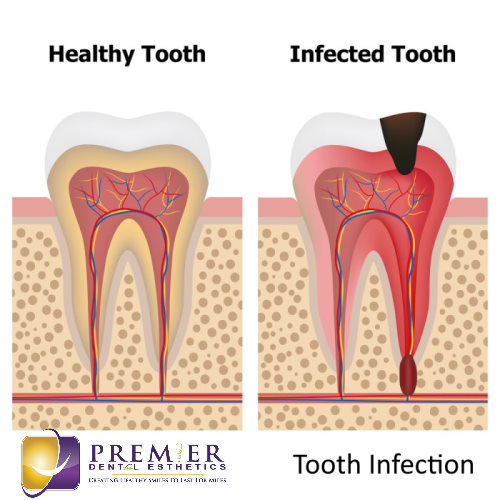
Understanding Dental Infections
Dental infections can be painful and debilitating if left untreated. It is crucial to have a good understanding of what causes dental infections, the different types, and the common symptoms associated with them. This knowledge will help you identify and seek the appropriate treatment in a timely manner.
Causes of Dental Infections
Dental infections can be caused by various factors, but the most common cause is poor oral hygiene. When you neglect to brush and floss regularly, bacteria can accumulate on your teeth and gums, leading to plaque formation. Over time, this plaque can harden into tartar, creating a perfect breeding ground for harmful bacteria.
Furthermore, dental infections can also occur as a result of untreated tooth decay or cavities. When a tooth cavity is left untreated, it can progressively worsen, eventually exposing the inner pulp of the tooth to bacteria. This can cause an infection known as a dental abscess.
Types of Dental Infections
There are several types of dental infections, each with their own distinct characteristics. The most common types include:
-
Gingivitis: This is the mildest form of gum disease and is characterized by red, swollen, and bleeding gums. If left untreated, gingivitis can progress to more severe gum disease called periodontitis.
-
Periodontitis: This is a more advanced form of gum disease, characterized by the inflammation and infection of the tissues surrounding the teeth. It can lead to tooth loss if not treated promptly.
-
Dental Abscess: This is a pocket of pus that forms at the root of a tooth or in the gums. It is often accompanied by severe pain, swelling, and a bitter taste in the mouth.
Symptoms of Dental Infections
Recognizing the symptoms of dental infections is crucial for early detection and prompt treatment. Some common signs and symptoms include:
- Persistent toothache
- Swollen gums
- Sensitivity to hot or cold foods and beverages
- Bad breath
- Pus or swelling around the affected tooth or gum
- Difficulty chewing or biting
If you experience any of these symptoms, it is important to seek dental care as soon as possible to prevent further complications.
Diagnosing Dental Infections
Proper diagnosis is essential to determine the most appropriate treatment for dental infections. Dentists use various diagnostic methods to identify the type and extent of the infection.
Physical Examination
During a physical examination, your dentist will visually inspect your teeth and gums, looking for any signs of infection such as redness, swelling, or pus. They may also gently probe the gums to check for tenderness or pain.
Dental X-rays
Dental X-rays are a valuable diagnostic tool for determining the depth of the infection and identifying potential abscesses or bone loss. X-rays can provide a detailed view of the teeth and surrounding structures, helping the dentist make an accurate diagnosis.
Pulp Testing
In cases where the infection has affected the inner pulp of a tooth, pulp testing may be performed. This involves applying heat or cold stimuli to the tooth to assess its response. If the tooth is unresponsive or overly sensitive, it may indicate an infected pulp requiring root canal treatment.
Microbiological Analysis
In certain instances, your dentist may request a microbiological analysis to identify the specific strain of bacteria causing the infection. This can help determine the most effective antibiotic to target the infection.
Non-Surgical Treatment Options
Non-surgical treatment options are often the first line of defense for dental infections. These approaches aim to eliminate the infection and save the affected tooth whenever possible.
Antibiotics
In cases of severe or systemic dental infections, antibiotics may be prescribed to control the infection and prevent it from spreading. However, antibiotics alone are not usually sufficient as a standalone treatment and are often combined with other therapies.
Root Canal Therapy
Root canal therapy is a common treatment for dental infections that have reached the inner pulp of a tooth. During the procedure, the infected pulp is removed, and the inside of the tooth is thoroughly cleaned and sealed. This helps to eliminate the infection and preserve the natural tooth structure.
Dental Fillings
When a dental infection is caused by a cavity, a simple dental filling can often resolve the issue. The decayed portion of the tooth is removed, and the resulting cavity is filled with a tooth-colored material, restoring the tooth’s function and aesthetics.
Tooth Extraction
In cases where the infection is severe or the tooth is extensively damaged, tooth extraction may be necessary. This is typically considered a last resort option when preservation of the tooth is no longer possible. Once the infected tooth is removed, appropriate measures, such as dental implants or bridges, can be taken to replace the extracted tooth.
Surgical Treatment Options
In some cases, surgical intervention may be required to address advanced or complex dental infections. These treatment options are typically reserved for more severe cases that cannot be effectively treated through non-surgical means.
Dental Abscess Drainage
When a dental abscess forms, it may be necessary to drain the pus to relieve pain and prevent further complications. This procedure involves making a small incision into the abscess and draining the infected fluid. Antibiotics may also be prescribed to aid in the healing process.
Apicoectomy
An apicoectomy is a surgical procedure performed when a root canal treatment fails to eliminate the infection entirely. During this procedure, the tip of the tooth root is removed, along with the infected tissue, to prevent reinfection.
Periodontal Surgery
If a dental infection has progressed to advanced periodontitis, periodontal surgery may be needed. This type of surgery aims to eliminate the infection, restore gum health, and prevent further bone and tooth loss. Various techniques, such as pocket reduction surgery and gum grafting, may be used depending on the severity of the infection.
Tooth Extraction
As mentioned earlier, tooth extraction may be required in some cases when other treatment options are not feasible. Extraction eliminates the source of infection and allows for further treatment options, such as dental implants or dentures, to replace the missing tooth.
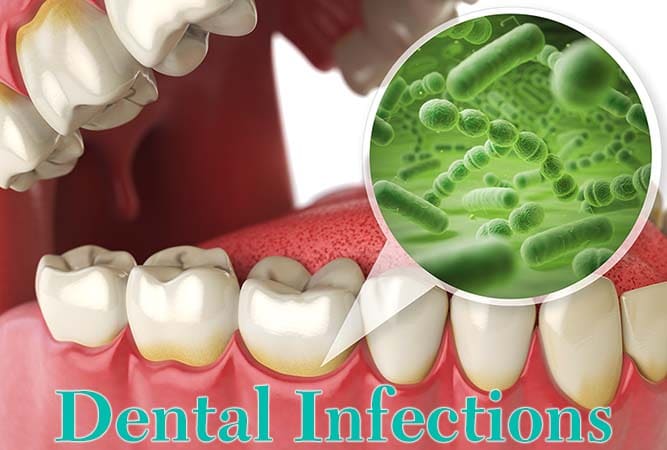
Preventing Dental Infections
While dental infections can be challenging to deal with, good oral hygiene practices and preventive measures can significantly reduce the risk of developing such infections.
Good Oral Hygiene
Maintaining good oral hygiene is crucial for preventing dental infections. Brushing your teeth at least twice a day, flossing daily, and using an antimicrobial mouthwash can help remove bacteria, plaque, and food particles that can lead to infections.
Regular Dental Check-ups
Regular visits to your dentist are essential to detect and treat any potential dental infections at an early stage. Your dentist will perform a thorough examination, conduct cleanings, and monitor your oral health to ensure prompt intervention if needed.
Healthy Diet
A balanced diet rich in essential nutrients can contribute to strong teeth and gums, reducing the risk of infections. Limiting sugary and acidic foods and drinks can help prevent tooth decay and gum disease.
Avoiding Tobacco and Alcohol
Tobacco and alcohol use can weaken the immune system, making you more susceptible to dental infections and delaying the healing process. Avoiding or minimizing these habits can greatly improve your oral health.
Managing Dental Infection Pain
Dental infections are often accompanied by pain and discomfort. While seeking appropriate treatment is crucial, there are also measures to manage the pain associated with dental infections.
Over-the-Counter Pain Medication
Over-the-counter pain medications, such as ibuprofen or acetaminophen, can provide temporary relief from dental infection pain. It is important to follow the recommended dosage and consult a healthcare professional if the pain persists or worsens.
Prescription Painkillers
For more severe cases of dental infection pain, prescription painkillers may be necessary. These medications are usually prescribed for a short period and should be taken under the guidance of a healthcare professional.
Topical Oral Analgesics
Topical oral analgesics, such as numbing gels or creams, can be applied directly to the affected area to provide temporary pain relief. These products can be helpful for managing pain while awaiting professional dental care.
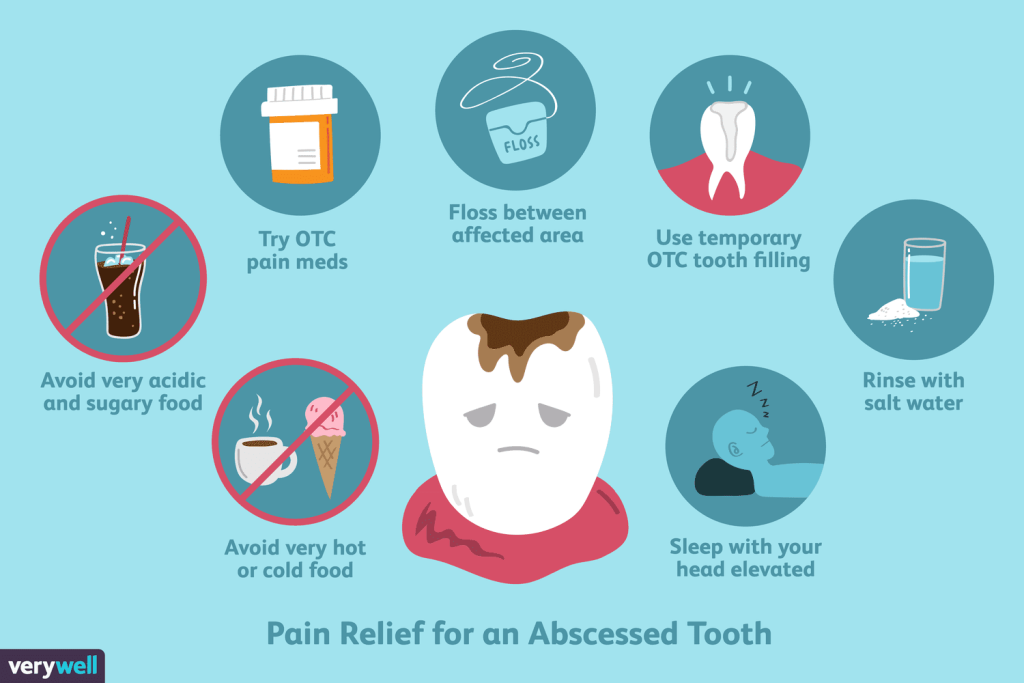
Potential Complications
If left untreated or not properly managed, dental infections can lead to several potential complications that can adversely affect your oral health and overall well-being.
Spread of Infection
Unresolved dental infections can spread to other parts of the mouth and body, leading to systemic infections. Bacteria from dental infections can enter the bloodstream and affect other organs, potentially causing serious health problems.
Tooth Loss
Severe dental infections can result in irreversible damage to the teeth and supporting structures, leading to tooth loss. Losing a tooth can have significant functional and aesthetic consequences, necessitating additional dental procedures to restore your smile.
Periodontal Disease
Untreated dental infections can progress into more severe forms of gum disease, known as periodontitis. Periodontal disease can cause gum recession, bone loss, and eventually result in tooth loss.
Systemic Infections
In rare cases, dental infections can spread to other parts of the body and cause systemic infections. This can have serious consequences, especially for individuals with compromised immune systems.
Alternative and Complementary Treatments
While conventional dental treatments are typically the most effective in managing dental infections, some individuals may consider alternative or complementary treatments to supplement their care. It is important to note that these alternative treatments should not replace professional dental care but may offer additional support in certain cases.
Natural Remedies
Certain natural remedies, such as rinsing with saltwater or applying cold compresses, may help alleviate symptoms of dental infections. However, it is essential to consult with your dentist before trying any natural remedies to ensure they are safe and appropriate for your specific situation.
Acupuncture
Acupuncture is an ancient Chinese practice that involves inserting fine needles into specific points of the body to promote healing and pain relief. Some individuals find acupuncture helpful in managing dental infection pain, but further research is needed to establish its effectiveness.
Herbal Treatments
Certain herbal treatments, like tea tree oil or clove oil, have been traditionally used to reduce inflammation and alleviate toothache symptoms. While these remedies may provide temporary relief, it is important to consult with a healthcare professional and use them under their guidance.
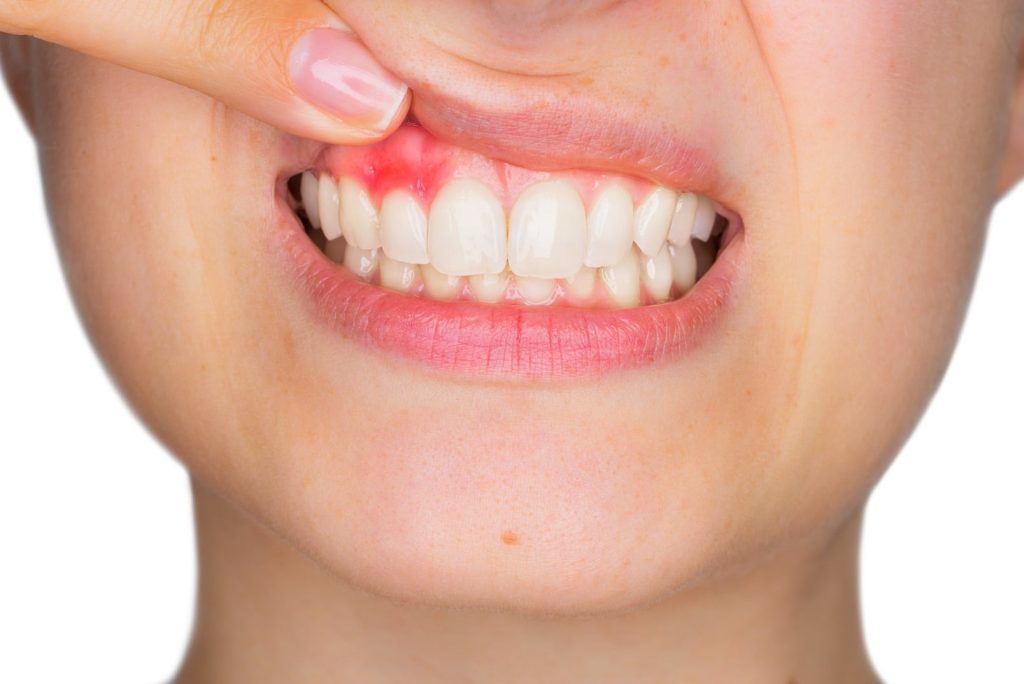
When to Seek Emergency Dental Care
In some situations, dental infections may require immediate attention to prevent further complications or alleviate severe symptoms. If you experience any of the following, it is important to seek emergency dental care:
Severe Pain
Intense and unrelenting tooth pain that affects your ability to eat, sleep, or carry out daily activities may indicate a severe dental infection that requires prompt attention.
Swollen Face or Gums
Significant swelling of the face or gums, especially if accompanied by pain or fever, could be a sign of an advanced dental infection that requires immediate treatment.
Difficulty Swallowing or Breathing
If a dental infection progresses rapidly and causes difficulty in swallowing or breathing, it is essential to seek immediate emergency care, as this may indicate a potentially life-threatening situation.
Importance of Timely Treatment
Timely treatment for dental infections is crucial to prevent further complications and preserve your dental health and overall well-being.
Preventing Further Complications
Prompt treatment for dental infections can prevent the spread of infection to other parts of the body, reduce the risk of tooth loss, and mitigate potential systemic health problems.
Preserving Dental Health
Treating dental infections promptly allows for a better chance of preserving the affected tooth and avoiding more extensive dental procedures, such as extractions or dental implants.
Improving Overall Well-being
Untreated dental infections can cause significant pain, discomfort, and impact your quality of life. By seeking timely treatment, you can alleviate symptoms and restore your oral health, leading to improved overall well-being.
In conclusion, understanding dental infections, their causes, symptoms, and available treatment options is crucial for maintaining optimal oral health. By practicing good oral hygiene, attending regular dental check-ups, and seeking timely treatment, you can prevent and effectively manage dental infections, ensuring a healthy and pain-free smile. Remember, early intervention is key in preserving your dental health and overall well-being.
